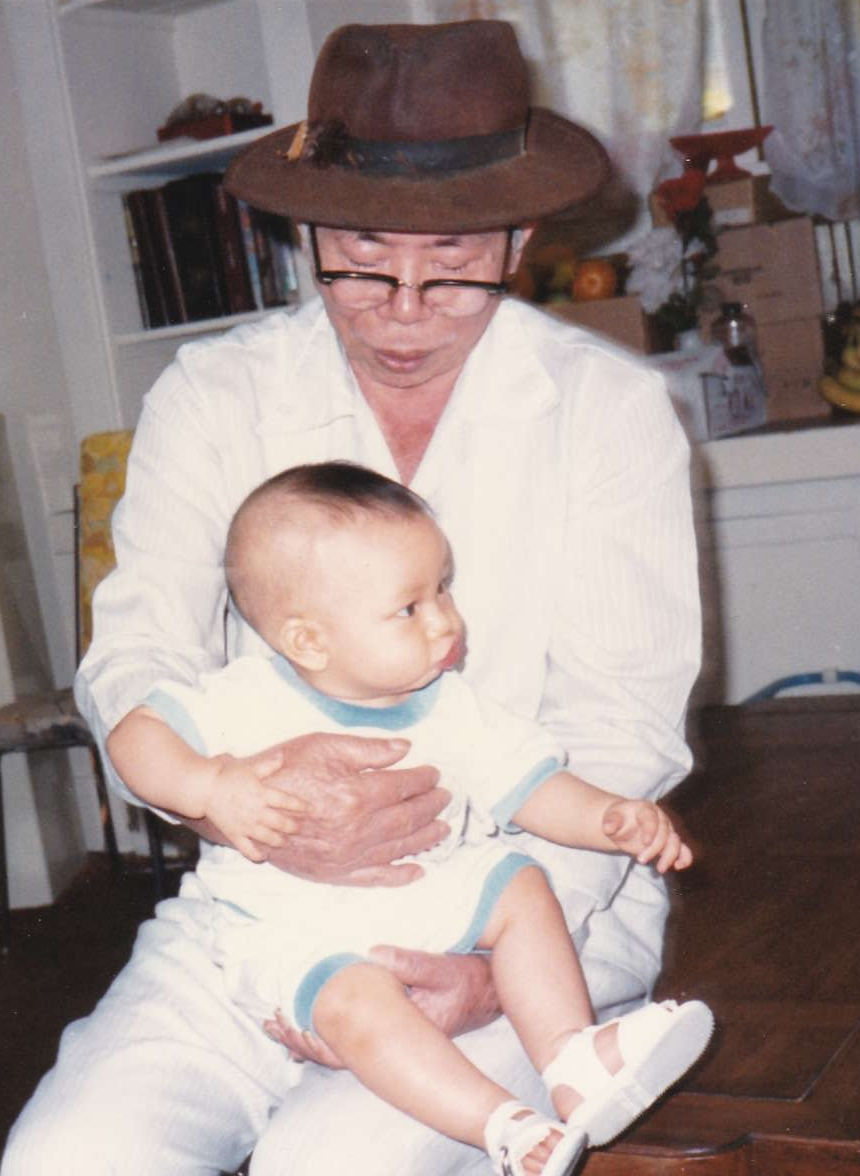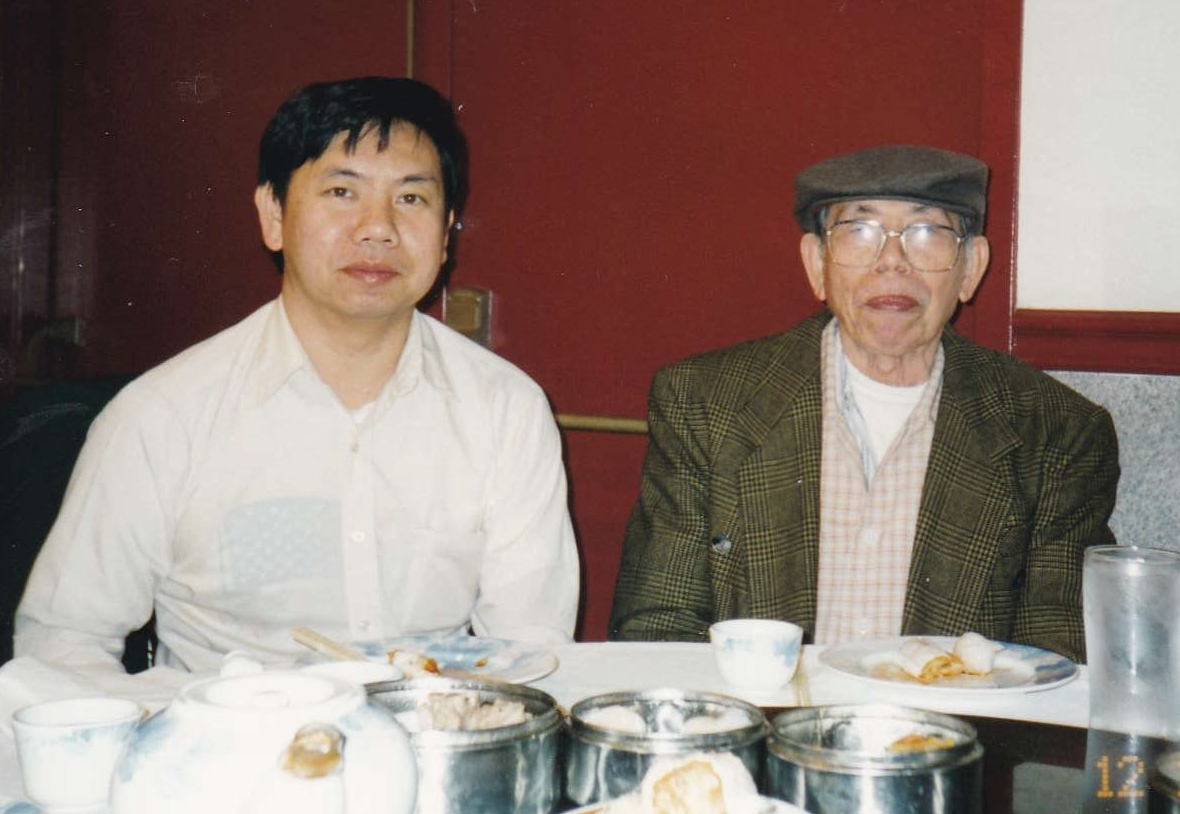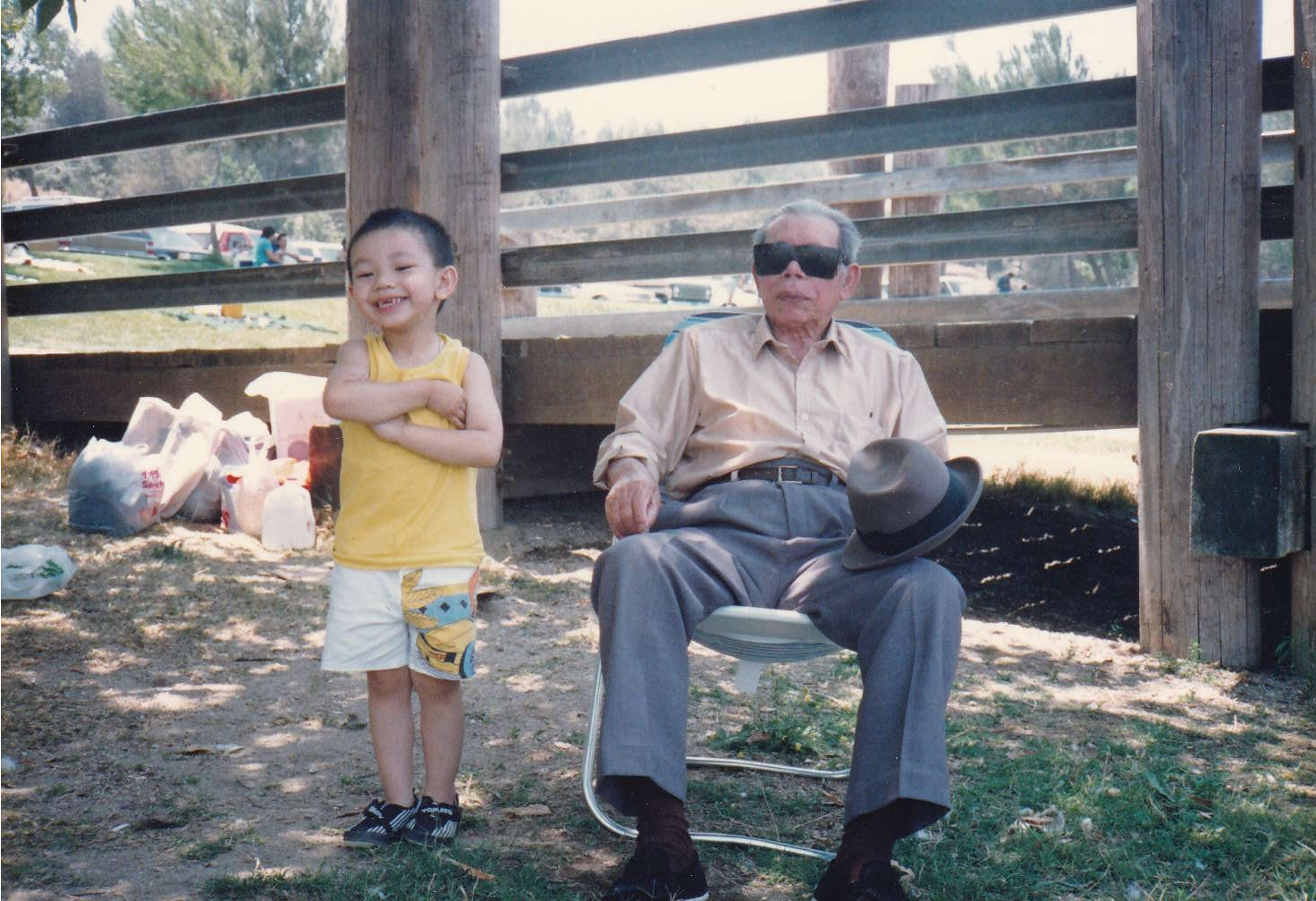Don’t Forget that Our Stories Count - Sign AB1726
Written By: Jonathan Tran, HIP Member. Content reflects Mr. Tran's personal opinions and do not reflect the position of any other organization.
Growing up, I spent a lot of time with my grandparents. Like so many other Southeast Asian families, my parents worked A LOT. They took multiple shifts and worked overtime whenever they could. That left the child rearing during those long hours to my “ah kong” (grandpa) and “ah ma” (grandma). One of my earliest memories was a casual day with ah kong in the garden we had in the backyard. He paused from his yard work when I came up behind him. I distinctly remember him reaching into a massive bucket, his face beaming with excitement and pulling out a giant guava the size of my head. I didn’t appreciate this until I was older, but growing a mutant-sized guava in the desert of Los Angeles is no easy task. I could feel the pride he had in this monstrosity of a fruit because of all the labor and time he had put into growing and cultivating it.
I was too young to remember most of the stories ah kong would tell me about coming to the United States as refugees from Vietnam--so most of what I know comes from stories I heard from my dad. There was nothing in those stories that made ah kong sound extraordinary. His family grew up painfully poor in Southern China and the economic conditions were so awful that his family uprooted and moved to Vietnam. His story in Vietnam was not particularly spectacular either as he worked as a garment merchant selling children’s clothing sewn by my grandma in local markets in Vietnam. His harrowing journey to America--surviving war, escaping Vietnam as a boat person, living over a year in a refugee camp in Indonesia; is heartbreaking but also shared by many others who had to endure similar or worse tragedies. There’s no one single story about my grandpa that stands out for me. Instead, I remember my grandpa’s collective narrative--the persistent grit and grind and sacrifice at every stage of his life. In many ways, the pride that ah kong expressed with the giant guava fruit was a microcosm of the same type of grit and grind that he had known all of his life. The fact that our family had resettled in the United States and his grandchild were beginning to flourish was his proudest guava fruit.
Sadly, most of my recent memories of ah kong are filled with sadness, anguish and loss. By the time I reached high school, my grandpa was plagued by a trifecta of diseases--diabetes, dementia and undiagnosed PTSD. I remember waking up in the middle of the night hearing my grandpa screaming in his sleep or walking into his room to find him standing on top of his bed clawing at the walls and ceiling. Morbidly, I wished the dementia would eat away at the painful parts of his mind so that he could be at peace. As his dementia further deteriorated his brain, he began to lose basic functions of his body--leaving my grandma and father to clean up after him or feed him. Eventually, the burden of caring for him became too great for any single person so my family was forced to put him into a nursing home. To our horror, the nursing home lacked any culturally competency--resorting to strapping him into the bed and feeding him blended meatloaf. Heartbroken by his suffering, my grandma advocated for moving ah kong back home and utilizing the assistance of in-home support services to care for him. Ultimately, the diseases left him frail, blind, afraid and unable to recognize the loved ones who would sit and quietly hold his hand. Ah kong passed away at home after his body finally gave out.
“Dementia doesn’t care what race you are but how we treat human beings in a comforting, respectful and dignified way requires us to understand who they are and where they come from.”
It’s been more than a decade since ah kong passed away. Thinking about his suffering still brings tears to my eyes because on the outside I could see him physically struggle but I can’t even imagine the storm that raged inside his mind. I share the story about my ah kong because last week, I stood on the steps of the California State Capitol and watched as a group of Republican lawmakers paraded a small cohort of Chinese folks to use lies, fear and ignorance to try and wipe away the identity, grit and perseverance of my grandfather. By lying about AB1726, these misguided protesters tried to undermine a bill that recognizes the diversity in the community and acknowledges that each journey in becoming an American is uniquely different and poses different challenges. Using slogans like “We are all Americans” this rally ignored centuries of discrimination in which immigrants and Americans of color were ignored and never counted. They casually do not recall that some Asian subgroups suffer astronomically higher rates of PTSD, diabetes, cancer and are more likely to cope with undiagnosed dementia. They don't seem to realize that clinical studies about how chronic diseases like diabetes and dementia affect Asian American communities are almost non-existent. These lawmakers callously ignore the thousands of community members, like my grandpa, who suffer in silence because our health delivery system is so poorly equipped to meet the needs of California’s growing diversity. They selfishly call for everyone to be treated the same but forget that the playing field has never been level for communities who have had to overcome much more to get to where they are today. Those same lawmakers who were so adamant about standing for the cause of justice and equality were the same who voted to eliminate funding for basic services like In-Home Supportive Services, voted against improving language access and voted against health coverage for undocumented children. Those same lawmakers who cry foul about racial injustice also voted against provisions that would create safeguards to prevent unlawful search and seizures.
“Ultimately, data in of itself is simply that... data. How it is used and how it is collected is entirely up to the entities that control it... On the other hand, the absence of or deliberately ignorance of data has far more sinister intentions and consequences. ”
Watching helplessly as ah kong suffered in his last years broke my heart. To see others try to scrub his suffering as if all things are equal is disgraceful and dishonest. For diabetes and PTSD--race, ethnicity and socioeconomic status are strong risk indicators for both. In comparison, Dementia doesn’t care what race you are but how we treat human beings in a comforting, respectful and dignified way requires us to understand who they are and where they come from.
This is why I was particularly outraged when Senator Bob Huff, the ring leader of Wednesday's Republican rally, draped himself in the words of Rev. Martin Luther King, Jr. and inaccurately drew connections between disaggregated data collection and Japanese Internment during WWII & the Chinese Exclusion Act. Huff affectionately refers to himself as the Senator representing the "largest API population in the state"--a fact that is only made possible because of granular Census data collection. Using this title, Huff, in committee and in multiple public speeches, outrageously compares AB 1726 with racist policies like the Chinese Exclusion Act and Japanese Interment during WWII. It's awful enough that Mr. Huff, a white Senator who never experienced Japanese Internment or had relatives who endured it, would warp and appropriate racist events in American history to further his political agenda; but when asked by the Japanese American community to refrain from making references to internment, Mr. Huff decided to double down. In his victim blaming letter, Senator Huff writes "one can only conclude from the tone and inaccurate, inflammatory rhetoric of your letter that is serves no real legislative purpose, that your goal is not to correct some policy issue that occurred in the Senate Education Committee, but rather that you desire to sow division between API groups and myself..." In this letter, he accuses JACL of being divisive despite the fact that the vast majority of Asian American and Pacific Islanders stands in agreement w/ JACL and hundreds of organizations have already signed on in support of AB 1726. Moreover, Huff never acknowledges the fact that these Japanese Americans actually lived through internment and don't need his patronizing explanations. Instead, Huff's primary justification for referencing Japanese Internment was to point out that Census data was used to track Japanese Americans following Pearl Harbor. He failed to mention that this action was only possible when Congress, responding to xenophobia and anti-immigrant sentiments (similar to those we hear from current conservative caucus members), took an unprecedented step of lifting confidentiality requirements in the Census. Those safeguards were restored in 1947 and confidentiality rules have only been strengthen since.
Ultimately, data in of itself is simply that... data. How it is used and how it is collected is entirely up to the entities that control it and most importantly, the safeguards that are put in place to ensure equal protection, privacy and confidentiality. Those safeguards exist in AB 1726. On the other hand, the absence of or the deliberate ignorance of data has more sinister intentions and consequences. Whether it is counting African Americans as only 3/5 of a person or only counting landowning whites as eligible to vote or in the instance of the Chinese Cultural Revolution, homogenizing languages and ethnicities to eliminate diversity--purposefully ignoring groups and not collecting data serves primarily discriminatory purposes.




